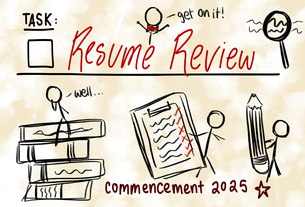Retrospection
Retrospection: The First Snowpocalypse
The roads are plowed, the students have stopped hibernating and started shuffling back to class, and so our latest “Snowpocalypse” is officially behind us. As dire as that name might sound, last Tuesday, Jan. 27, was in fact Harvard’s third closure due to inclement weather in three consecutive years. After Hurricane Sandy in 2012 and winter storm Nemo in 2013, it’s easy to imagine this becoming another of the College’s many traditions. But before 2012, it required nothing less than an actual apocalypse—“an act of God, such as the end of the world,” former Dean of Students Archie C. Epps III declared in 1977—for the University to close.
Campus Speech, Interrupted
FM investigates past events at which speakers on campus have been given a less-than-warm welcome.
History of Pranks at Harvard
Pranks and hoaxes are an important part of Harvard’s history.
This is Primary Source
Before he published two books or starred in The Office as Ryan Howard, B.J. Novak ’01 reviewed an imaginary band for FM.
Their Fair City: “Car Talk” and Cambridge
Looking back at Tom and Ray Magliozzi’s “Car Talk” and its Harvard Square home.
The Better Butter Book
A 1766 satire of the Bible catalogued a Harvard butter rebellion.
The History of Comp
Comp, a uniquely Harvard undertaking, fills a series of different roles for undergraduates seeking to join student groups on campus. It ensures that new members fit into the organization, indoctrinates them in the functions of the club, and teaches them new skills. Whether it’s over in a couple of weeks or fills up the entire semester, whether it’s a straightforward checklist or a highly challenging competition, comping is an investment of time, energy, and effort to demonstrate one’s willingness and ability to actively commit.
Concentration Timeline
Last week, the Faculty of Arts and Sciences announced that the College likely offer a concentration in Theater, Design, and Media next fall. Though the addition of a new concentration is exciting, it’s not the first time it has happened—Harvard was not created with all 48 concentrations, but rather added them throughout the years. With the declaration date for sophomores looming on the metaphorical horizon (lookin’ at you, prospective English concentrators), FM has thoughtfully compiled a chronology of the addition of concentrations through the ages.
In The School of Tyrannus
If you haven’t heard of Nathaniel Eaton, Harvard’s first head of school, it’s not because he’s one of the University’s buried treasures. Described by one student as “fitter to have been an officer in the inquisition, or master of an house of correction, than an instructer (sic) of Christian Youth,” Eaton’s disastrous year-and-a-half-long tenure, from 1638 to 1639, ended in a court case in which he was ordered to step down and pay a fine. The school closed down for the subsequent academic year. The affair was such a scandal that in 1940, some students argued that 1640 should be seen as the real founding year of Harvard College. Here are just a few things that made Nathaniel Eaton and his regime, well, shitty.
The Mather Witch Project
In 1692, there was a tide in the affairs of the Mathers. Increase Mather, the family patriarch, had just reluctantly accepted his appointment as Harvard’s seventh president. His son, Cotton, was a bright-eyed and bushy-tailed young minister who fully immersed himself in all things Protestant. Neither had much to do with the other’s business, until something wicked came their way.
The Other John
John the Orange Man began selling fruit in Harvard Square in 1858, about a decade after he immigrated to Cambridge to escape the Irish potato famine. He worked in the Square until his death following an operation in 1906, and during that period, saw the erection of 26 university buildings, and made the acquaintance of Henry Wadsworth Longfellow, Oliver Wendell Holmes, and Theodore Roosevelt. In 1891, the Boston Daily Globe dubbed him “the most popular man at Harvard.”
Diary of a Mad Librarian
SCENE: THE LIBRARY. (Curious Freshman removes a catalogue-card from its proper place). NOAH. Look here, sir! Don't you know it's against the rule to take those cards from the drawer? CURIOUS FRESH. But I suppose it's no matter, as I did it insensibly. NOAH (excited). Yes, but it is! You will incense Sibley, if you are not careful!
The Tell-Tale Heart
The oldest college periodical is essentially a gossip rag. Plus a dream journal. And an exposé of the "Spy Club."
B.F. Skinner at Harvard
Long before there were grab and go lunches and weekly pub trivia nights, slot machines and pianos filled the basement of Memorial Hall. The lucky gamblers and musicians were not students or faculty, but pigeons.





